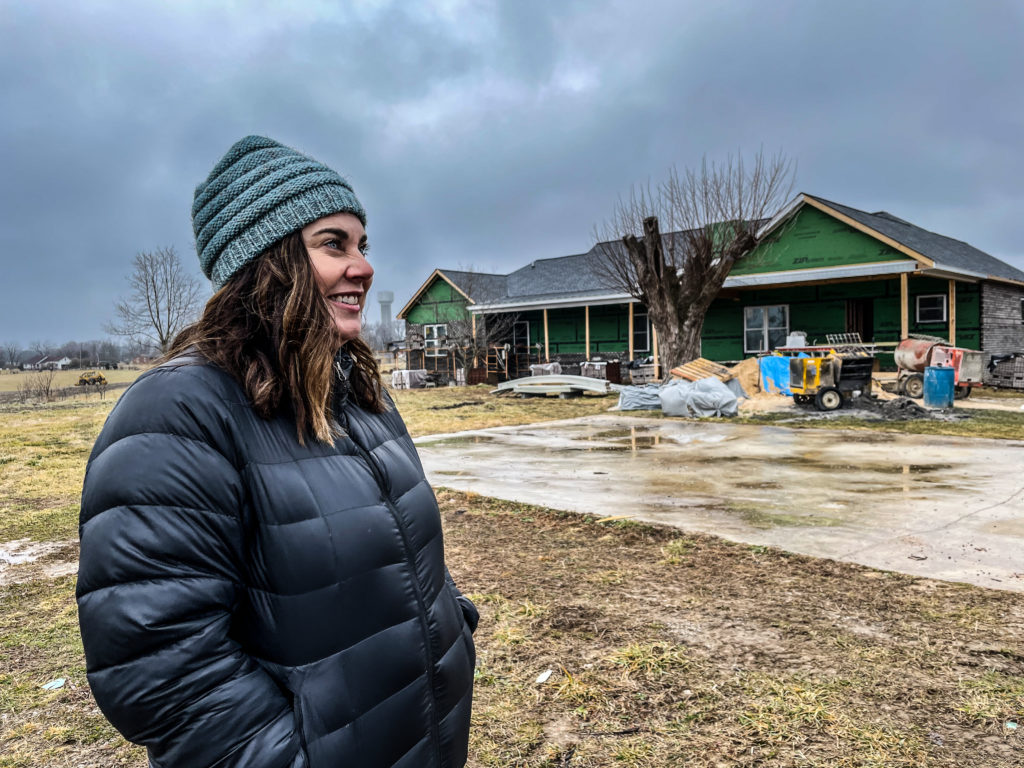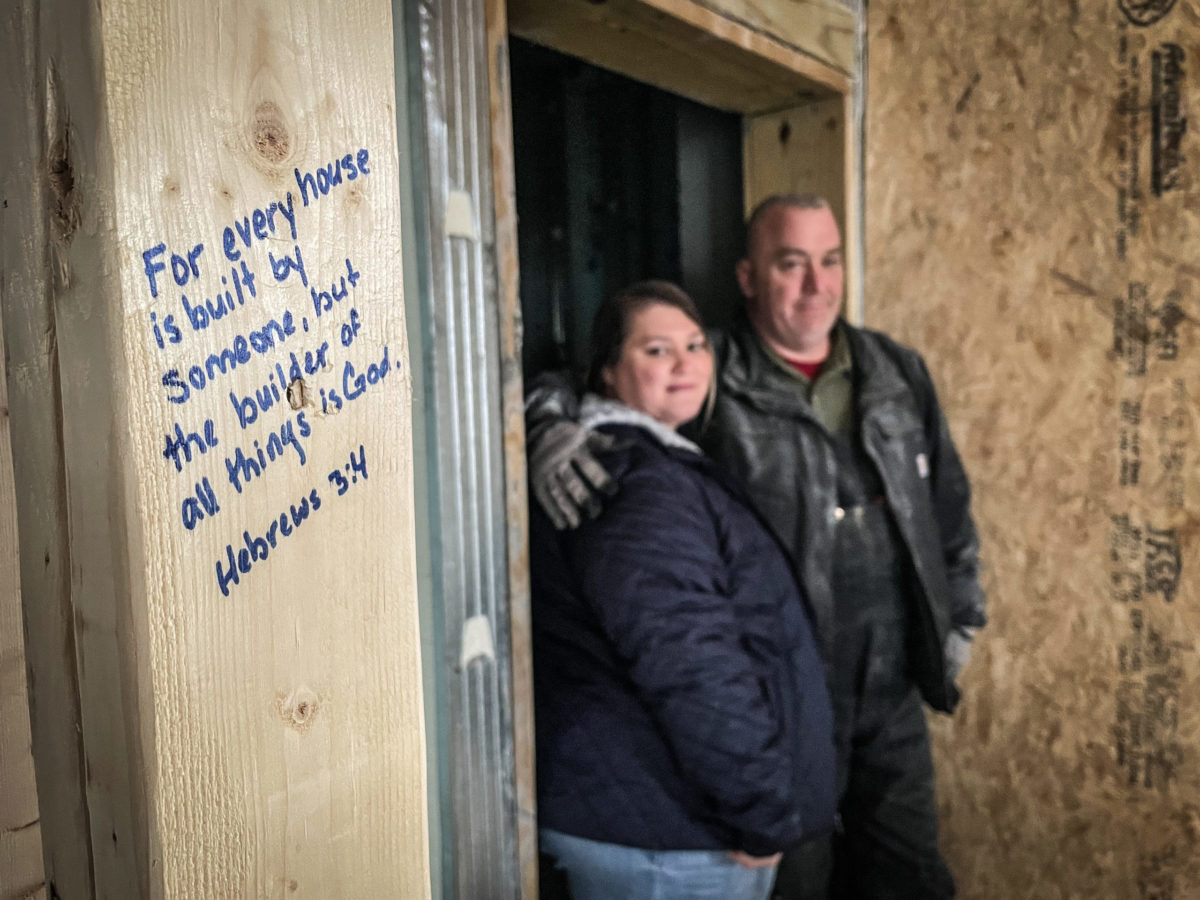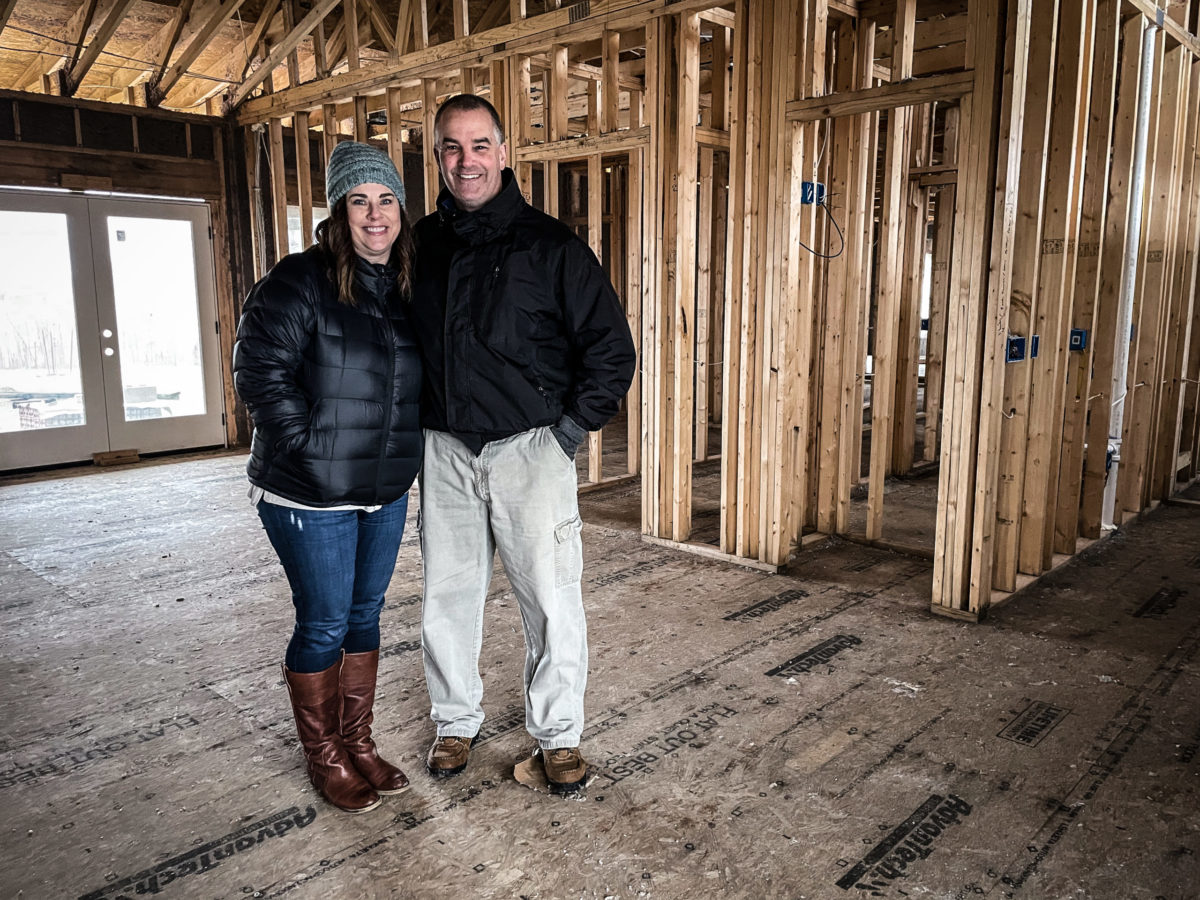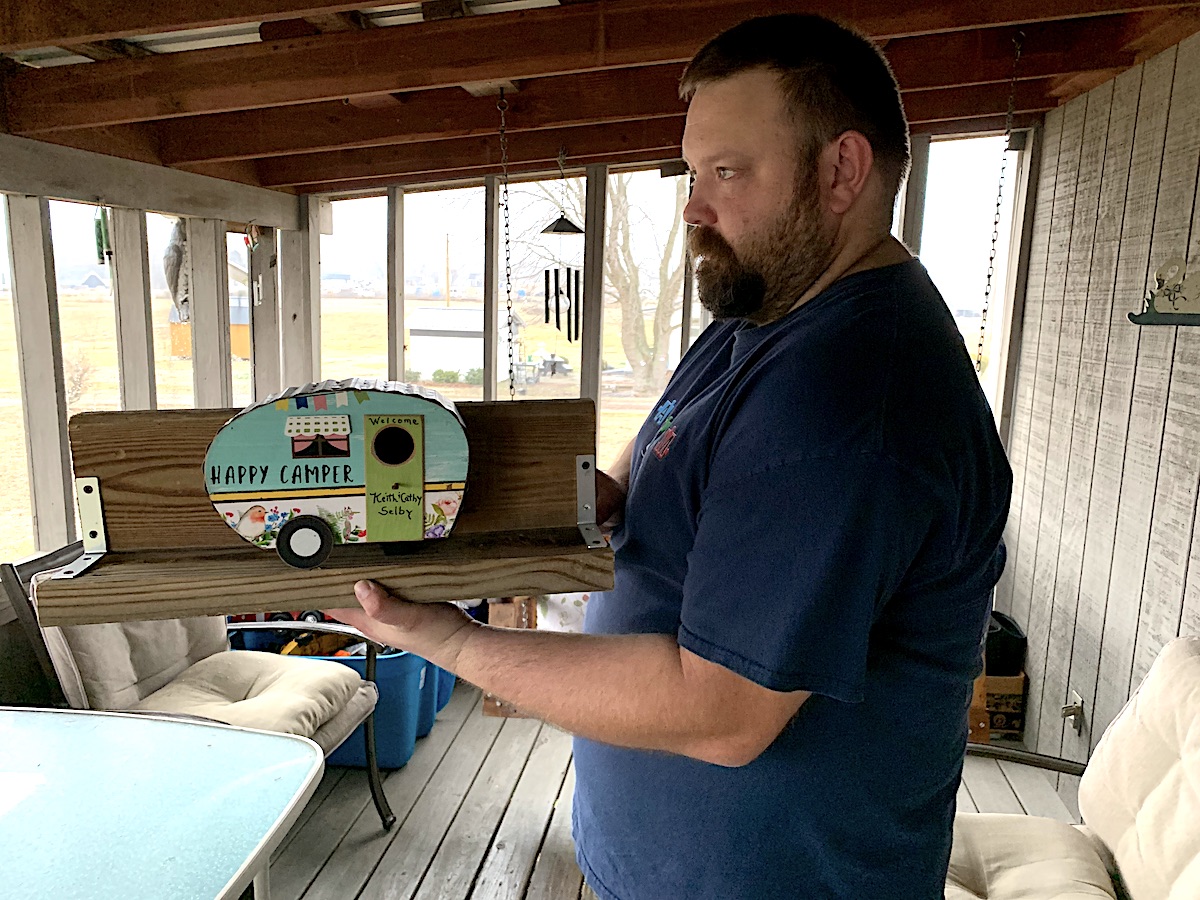
This story is part of a series marking the one-year anniversary of the 2020 tornadoes. Visit the series page here.
Rebuilding after a natural disaster is always more emotional than the typical construction project. And it’s especially hard for those who are traumatized by living through the destruction, like when the EF-4 tornado cut through Putnam County a year ago, in the dead of night.
The tornado killed 19 people, damaged hundreds of homes and scarred the community. Yet many have decided to drive their stakes even deeper into the ground.
The Williams family on Plunk Whitson Road took the horror of that night and decided to build their dream home — a fortress, really. Charles Williams found a local building supply company that gave him a survivor’s discount on concrete walls. They’re 12 inches thick.
“These are rated at 245-mile-an-hour wind loads,” he says, slapping them to show their sturdiness. “I don’t think it’s going anywhere.”
He also secured every roof truss to the walls and considered breakaway eaves, before deciding those were too expensive.
In their master bedroom closet, he built a concrete safe room, big enough for Charles, his wife Tamara and their three kids. They hope never to need it.
“Or at least if we ever do, then hopefully there’s more standing than what was standing that night,” Tamara says.
 Tasha Lemley WPLN News
Tasha Lemley WPLN NewsTamara and Charles Williams stand in the doorway of what will be their concrete safe room, but the entire house has walls that are made of concrete 12 inches thick, rated to withstand 245 mile-an-hour winds.
There was basically nothing left after the last tornado. Having anything left is a start, Charles says, choking back tears.
“I know for a fact that closet’s still going to be here,” he says. “And we’re going to be here.”
A tough year all around
Like dozens of families in the area called Double Springs, just outside the Cookeville city limits, the Williams family lost basically everything — their homes, their cars, their clothes. For their home, there were literally two walls left — and those were the two walls of the bathroom they huddled inside.
All five have post-traumatic stress from the ordeal, Tamara says, which has helped them understand Charles, who suffers from PTSD related to his career in the Army and deployments to Iraq.
It’s been a trying year in many respects. Tamara, who is a nurse at the veterans hospital, came down with COVID-19 and had to be hospitalized for two weeks. Charles got sick too, but it wasn’t severe. Then he had a heart attack. And all the while, he was the one rebuilding their house because he couldn’t find an affordable general contractor.
Now, he’s trying to lower the stress level and work fewer 16-hour days at the house.
“I just got to get my family home,” he says. “[I’m] slowing down a little bit, but I’m still plugging away at it.”
He’s already planned the pool party with Texas barbecue for when the house is finished this summer.
‘I might not want to live there anymore’
 Tasha Lemley WPLN News
Tasha Lemley WPLN NewsTerri and Ted McWilliams say they had to have a series of discussions to figure out if they wanted to rebuild after a tornado took their home and nearly killed Terri and their three kids.
The combination of COVID restrictions and the related building boom has made recovering from this storm slower than most families would have liked.
But half a mile away, Terri McWilliams says she’s been OK with taking it slow.
“You know, everybody’s like, you’ll be in your house for the one-year anniversary. I’m kinda glad we’re not,” she says, standing inside on Clemmons Road. At the one-year mark, their home is still a frame of a house.
McWilliams, who is an accountant at Tennessee Tech and mother of three older kids, wasn’t so sure she wanted to rebuild. Her 18-year-old was very nearly sucked away as they dove into the basement. Her husband, Ted, was traveling for work that night.
He came back ready to get cracking.
“He was just like, ‘Hey, we’re going to build, I mean, what’s the problem?’ And I was like, ‘uhhh, because I might not want to live there anymore,’ ” Terri recalls.
Most of their mature trees were gone, including a pecan orchard, and that was important to Terri. They could see the neighbors now, and that would take some getting used to.
But mostly, the hesitation was related to weather anxiety. The first tornado warning after the storm, she nearly had a panic attack at the office while worrying about protecting her kids. Ted says they had to have a series of conversations for him to understand the trauma they had experienced without him.
“I had a good come-to-Jesus for me,” he says. “I didn’t realize. They went through this. I didn’t.”
No one to rebuild for
Ultimately, the McWilliams decided to rebuild, albeit with slightly sturdier walls facing west, where the storm came from that night.
While the construction sites tell one kind of story, the many empty lots tell another.
For some, rebuilding was too much to take on. Or, in several cases, no one was left to rebuild.
 Blake Farmer WPLN News
Blake Farmer WPLN NewsBrian Selby holds a camper that is meant to honor his parents, Keith and Cathy, who died in the March 3, 2020 tornado that cut through Double Springs. The couple had their own camper that they traveled with. The wood is made from decking outside their mobile that was sucked into the air by the storm.
Brian Selby, a father and over-the-road truck driver, draws the blinds to look out the back window of his grandmother’s house, where he lives with his children. The night of the storm, he watched his parents’ mobile home get ripped from its foundation. He left his kids with his grandmother, who sang “Jesus Loves Me” over them to keep everyone calm.
Selby ventured into the dark, with no power and lightning still flashing overhead.
“I finally got out there, ran hard as I could, stepping on mud, nails, whatever, I didn’t care,” he says. “Then I found a woman’s body, and there wasn’t a doubt in my mind who that was. But I sucked it up, and I just took a minute to breathe.”
It would take longer to find his dad.
He and several neighbors searched the rest of that stormy night, and into the morning. It would be another nine hours before Selby found his father’s body, crushed under a camper that had been tossed by the winds topping 170 mph.
Where his parents’ home stood is now just a flat patch of grass. And there are several lots like it — where those inside died that night. One such property, owned by the Kimberlins, is being sold to the county to make a park and playground that will be a memorial to those who died.
They aren’t rebuilding his parents’ home. But Selby’s brother is constructing a memorial in its place.
Selby says he has nightmares about the storm and what he saw. But he also says the Double Springs community is now a place where instead of waving at passing neighbors, they talk and share meals.
“Several times I’ve thought about leaving Cookeville,” he says. “But after this, I wouldn’t go nowhere.”

